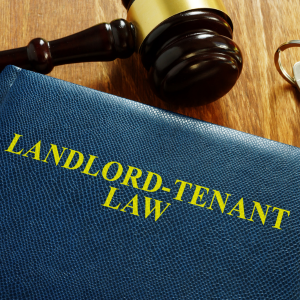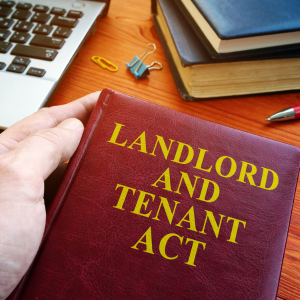
Selling a tenant-occupied house in North Carolina comes with unique challenges. Zack Buys Houses helps you navigate tenant rights and legal steps to ensure a smooth, compliant sale.
Understanding Tenant Rights and Responsibilities in North Carolina
When selling a home with tenants in North Carolina, it is critical to understand the rights and duties of both landlords and tenants under state law. Tenants may occupy the property until their lease expires, unless otherwise agreed upon in writing.
Landlords must provide adequate notice before showing the property to potential buyers, with a minimum of 24 hours’ notice for entrance. Maintaining tenant privacy while efficiently marketing a home is crucial.
Renters are also responsible for maintaining the premises in accordance with their lease agreement, which includes granting reasonable access for inspections and showings. Understanding these legal requirements can help to guarantee a smooth transaction by encouraging cooperation between sellers and tenants throughout the home-selling process.
Understanding North Carolina landlord-tenant laws can help resolve problems, comply with regulations, and protect both parties’ interests when selling an occupied rental property.
Navigating the Landlord-Tenant Relationship in Rental Properties
Effectively selling a house with tenants in North Carolina necessitates meticulous management of the landlord-tenant relationship to guarantee a seamless transaction. In particular, it is crucial to comprehend North Carolina’s tenant rights and landlord obligations, particularly in relation to lease agreements and notice periods.
Communication with occupants can be beneficial in reducing anxiety regarding property showings and potential disruptions. Provision of incentives for tenant cooperation during the sale process may motivate them to preserve the property’s condition and facilitate prospective purchasers’ visits.
It is imperative to adhere to North Carolina rental laws when conducting inspections or appraisals, which involve the coordination of tenants’ privacy rights. Furthermore, determining whether the transaction generates grounds for lease termination or if the agreement is transferred with ownership is instrumental in preventing legal disputes.
Landlords can effectively manage tenant relationships during the sale of their rental properties in North Carolina by satisfactorily addressing these aspects.
Legal Considerations for Selling a House with Tenants in Place
When selling a house in North Carolina that has tenants, it’s important to know the legal issues that come up to make sure the sale goes smoothly. Landlords must follow state and federal rules that protect tenants’ rights and property purchases.
One important thing is to follow the terms of the current lease. If the renters are on a fixed-term lease, they usually have the right to stay until it ends unless they agree to anything else. Also, North Carolina law says that you must give at least 24 hours’ notice before showings, so it’s important to do that as well.
Also, sellers should know about any local laws that could change the sale process or the rights of tenants. It’s important to be open with potential purchasers regarding the present tenant situation, which includes letting them know about any ongoing leases or rental agreements.
Hiring a real estate lawyer who has worked with these kinds of problems before can help you get through the sale process and make sure you follow all the rules.
Preparing Your Property for Sale While Occupied by Tenants

When planning to sell a house occupied by tenants in North Carolina, it is critical to properly navigate the process to ensure a seamless transaction. To sell your property, communicate openly with your renters while honoring their lease agreements and rights under North Carolina tenancy laws.
Offer incentives to encourage collaboration during showings or open houses, such as rent reductions or scheduling flexibility. It is critical to keep the property in good condition; work with tenants to keep the home neat and tidy for possible buyers.
Conduct essential repairs and updates without invading tenant privacy, ensuring that any changes are in line with increasing property value while also maintaining tenant comfort. Understanding North Carolina landlord-tenant regulations might help you properly manage expectations and responsibilities during this period.
Balancing tenant demands with sales goals helps boost buyer interest and minimize inconveniences for all parties involved.
Selling a property occupied by tenants requires clear communication and proper planning. Notify tenants before showings and keep the home presentable while respecting their rights and schedules. If you want to sell your home for cash in North Carolina, Zack Buys Houses can ensure a fast and smooth process.
The Role of Lease Agreements When Selling Rented Property
When a rental property with active tenants changes hands in North Carolina, the lease plays a central role. The contract binds both landlord and tenant to specific rights and duties that can significantly shape how the sale unfolds.
To find out if the agreement allows the early ending of the lease or whether the tenants must approve showing times, the seller needs to read the document closely. Precise wording usually spells out when buyers can tour the home and under what conditions the lease might be cut short, making later talks far easier.
Sellers must also keep tenants informed about the planned sale and follow state rules on notice, which helps avoid misunderstandings. By being open and sticking to the terms, the seller reduces the risk of conflict and encourages tenants to work with prospective buyers.
Knowing the lease inside and out thus smooths the handover for everyone involved and keeps the transaction in line with North Carolina landlord-tenant laws.
How to Market a Rental Property to Potential Buyers Effectively

It is essential to emphasize the investment opportunity and tenant stability when marketing a rental property in North Carolina to potential purchasers. Begin by accentuating the property’s location, which includes any desirable features such as proximity to universities, business districts, or recreational areas.
Detailed financial information, such as current rental income and occupancy rates, can be provided to attract investors seeking consistent cash flow. Virtual tours and high-quality photographs can effectively demonstrate the property’s condition and layout, making it more alluring to buyers from out of state.
Furthermore, prospective purchasers can be assured of a seamless tenant transition by showcasing robust lease agreements and positive tenant relationships. By utilizing their expertise in property valuations specific to this region and tapping into their network of interested purchasers, collaborating with a real estate professional experienced in North Carolina’s rental market can further enhance your marketing strategy.
Addressing Tenant Concerns During the Home Selling Process
Selling a rental property in North Carolina requires thoughtful handling of tenant concerns if the deal is to close without surprises. Begin with clear, open communication: let tenants know as soon as the decision to sell has been made, outline how the sale could impact their lease, and reassure them their rights remain protected.
Follow state landlord-tenant law, delivering all required written notices within the legally mandated time frames. To ease cooperation during showings, consider modest incentives such as a temporary rent reduction or a contribution toward moving costs.
Offer showing times that fit the tenant’s schedule, even if that means early mornings or evenings. Address maintenance requests quickly, maintain the property in good condition, and keep the relationship professional to encourage tenants’ goodwill when prospective buyers visit.
Essential Steps for Notifying Tenants About Property Sales
It is essential to adhere to the appropriate procedures for notifying tenants of the property transfer in North Carolina in order to maintain positive relationships and ensure compliance. First, it is important to review the lease agreement in order to comprehend any specific clauses that pertain to tenant notification requirements and property sales.
Typically, landlords in North Carolina are required to provide tenants with sufficient notice, which is at least 30 days in advance of any substantial alterations, such as inspections or showings. Communicating with tenants in a transparent and candid manner is crucial, as it allows them to understand your intentions and address any apprehensions they may have regarding the transition.
It is crucial to provide written notice that details the anticipated timeline for the transaction process and the potential impact on their tenancy. During this period, this not only ensures that tenants are aware of their rights but also assists in managing expectations.
In addition, providing incentives or assurances can encourage tenants to cooperate during open houses or showings, which could potentially simplify the sales process for all parties.
Handling Lease Transfers and Renewals Amidst a Property Sale

In North Carolina, managing lease transfers and renewals is a crucial element when selling a property with renters. As the property owner, it is imperative to meticulously examine the current lease agreements to comprehend the stipulations concerning lease transfers after a sale.
North Carolina law mandates that leases generally persist after ownership changes; thus, effective communication with both tenants and prospective buyers is essential. Notify your tenants of the property’s selling intentions promptly, while reevaluating their existing lease agreements to ascertain if any modifications are required for a seamless transition.
Consulting legal advice is recommended to ensure adherence to state legislation when negotiating new agreements or extensions with tenants. An effective strategy guarantees positive tenant relations while offering transparency and confidence to potential buyers of an occupied property.
By proactively managing lease renewals, sellers can ensure a smooth property transfer while maintaining tenant rights in accordance with North Carolina landlord-tenant legislation.
When you sell a property, handling lease transfers and renewals is essential. At Zack Buys Houses, we buy homes in Charlotte and other cities and ensure legal compliance for a smooth transition.
Negotiating Offers on Homes with Existing Tenancy Agreements
Navigating a home sale subject to existing rental contracts in North Carolina can be far more complex than it appears on the surface, so precise planning is vital if the deal is to proceed without friction. First, review the current lease in detail. Its length, renewal clauses, and rent schedule will shape buyer interest and, ultimately, the price they are willing to offer.
Next, speak to your tenants with transparency. Walk them through the sales process and remind them that state law safeguards their rights even when ownership changes hands. For buyers seeking steady cash flow, the presence of a dependable renter can be a powerful selling feature.
Still, be prepared to discuss alternatives, such as an early lease termination or a gradual move-in schedule, should the new owner wish to occupy the house personally. Partnering with a real estate agent seasoned in rented properties can keep negotiations on track, aligning all parties and maximizing the sale price.
When you understand local regulations and speak candidly with your tenants, negotiations tend to flow more easily and are far more likely to end in a mutually satisfactory agreement.
Managing Tenant Expectations Throughout the Real Estate Transaction
Selling a rented house in North Carolina requires clear, honest communication and steady management of tenants’ expectations at every step. Notify your tenants as soon as you decide to put the property on the market, and explain that open lines of trust will benefit everyone.
Walk them through the sale process, mentioning possible showings and inspections while respecting their privacy rights and the state’s landlord-tenant rules. Clarify whether the lease terms will change or if they may need to move, and reassure them that, as long as the lease remains in force, they have the legal right to stay.
Should they choose to vacate before the lease expires, consider offering a small rent concession or covering part of the moving expenses as thanks for their cooperation. Update the tenants regularly on offers, closing dates, and any other news so they are never left guessing about their own homes.
By keeping communication open and tackling concerns early, you create a smoother transaction for yourself, the buyers, and most importantly, the people who call the house home.
The Impact of Local Laws on Selling Tenant-occupied Properties
If you want to sell a house in North Carolina that has tenants, you need to know a lot about the rules in the area that affect the process. Landlords have to follow both state and local landlord-tenant laws, which cover things like tenant rights and how to evict someone.
In North Carolina, landlords must give sufficient notice before showing the property to those who might want to buy it. This usually means giving at least 24 hours’ notice. Also, current leasing agreements are still valid after the sale, which means that the new owners are still responsible for these contracts.
It’s also important to know the details of security deposit rules, since they define how money should be handled when ownership changes hands. Also, landlords in North Carolina need to think about any rent control laws or housing rules that only apply to certain cities.
When tenants are involved, these legal restrictions might change the talks with buyers and the total schedule for concluding a deal.
Selling a tenant-occupied property can be complex due to local laws protecting tenant rights, such as required notice periods and limits on evictions. Navigating these rules can be challenging. For more help, Contact Us at Zack Buys Houses.
Can a Landlord Sell a House During a Lease in North Carolina?
Under North Carolina law, a property owner may sell a home while the lease is still in effect, but various practical difficulties must be resolved to ensure a smooth transaction. The lease remains binding after the sale; the new buyer assumes the landlord’s role and is expected to follow its terms until the agreed-upon period ends.
Clear communication between the landlord and the tenant is critical. Informing renters about the upcoming sale as soon as possible might make it easier to schedule showings, photographs, and inspections. While doing so, the seller should look through the lease for any terms that directly address ownership transfers and outline the occupant’s rights.
Renters are protected from instant eviction under state law just because ownership has changed hands. As a result, tenants may remain in residence until the lease expires, complicating the sales timeline. Offering monetary incentives, such as a rent reduction or a moving bonus, is a common way to persuade tenants to comply while obtaining their voluntary early termination signature. If all parties agree, it may result in the quickest, most amicable resolution.
Understanding the landlord-tenant rules in your area allows you to manage the relocation process legally and quickly while maintaining a cordial relationship with your tenants.
How Much Notice Does a Landlord Have to Give a Tenant to Move Out in NC?
Selling a house in North Carolina while tenants are still living there might be difficult, so you must choose how much notice to give them before moving day. The specific warning period varies depending on the lease type and the agreement you signed when the renter moved in.
If renters violate the terms of a month-to-month contract, you must provide written notice seven days later. However, if you, the owner, decide to discontinue the month-to-month agreement for whatever reason, you must provide thirty days’ notice. With a fixed-term lease, you typically wait until the lease expires unless there is a major breach.
Following these time frames exactly keeps you out of court and prevents delays that could jeopardize the deal. More significantly, being nice, introducing yourself early, and communicating freely with renters about showings, inspections, and their next home will often garner you the team’s cooperation.
North Carolina has specific standards for landlords and renters that all must obey. When both parties understand the law, they may treat one other with respect and remain professional even while the house is on the market.
What Are My Rights as a Tenant Without a Lease in NC?
In North Carolina, renters occupying a property without a written legal lease are tenant-at-will and do not enjoy protections during a home sale. Although no formal contract exists, state law still grants them specific rights that landlords and buyers must honor.
One fundamental safeguard requires owners to give reasonable advance notice before terminating occupancy or asking tenants to leave. For example, North Carolina generally mandates a seven-day notice for weekly arrangements and thirty notice for month-to-month agreements.
They also retain the right to a decent, livable space, meaning landlords must address urgent repairs, no matter the lease’s formality. Any owner marketing a rented residence should, therefore, understand these obligations to stay compliant and facilitate a trouble-free closing.
Finally, keeping honest, open dialogue with tenants about showings, moving schedules, and other sale-related issues can significantly ease stress for everyone involved.
What Are the Rights of Renters in NC?
To ensure a seamless sale of a house with tenants in North Carolina, it’s important to understand their rights. North Carolina’s tenant regulations are intended to safeguard renters even during the sale process.
Tenants have the right to remain in the property until their lease expires, unless otherwise agreed. Landlords must give adequate notice before accessing the property for showings, usually 24 hours in advance, while preserving the tenant’s right to privacy and quiet enjoyment of their home.
Furthermore, security deposits must be handled in accordance with state legislation, ensuring that they are refunded in a timely and fair manner at the end of the tenancy. If a tenant has a month-to-month lease, landlords are normally obligated to provide at least seven days’ written notice before terminating the arrangement for sale purposes.
Understanding these tenant rights can contribute to a polite and legally compliant sale process in North Carolina.
Need to sell your home? Whether you’re facing a time crunch, want to avoid repairs, or simply prefer a smoother sale, Zack Buys Houses is here to help. We offer fair cash offers and manage every step of the process, so you don’t have to. Call us at (704) 769-0141 for a free, no-pressure offer. Let’s make selling easy.
Helpful North Carolina Blog Articles
- Selling Your Investment Property in North Carolina
- Selling Your North Carolina Home With An Existing Mortgage
- How To Successfully Sell A House With Tenants In North Carolina
- Appraisal Repairs in NC: How They Impact Your Home Sale
- Documents Required to Sell a House in North Carolina
- Closing Costs Without a Realtor in North Carolina
- Guide To Filing A Quitclaim Deed For Real Estate In North Carolina
- Real Estate Division In North Carolina Divorce Cases
- Selling Your North Carolina Home Without A Real Estate Agent
- Who Pays the HOA Fees at Closing in North Carolina
- How to Sell a Condemned House in North Carolina
- How to Sell a House As-Is in North Carolina
- Does a Seller Pay Closing Costs in North Carolina
- Can You Sell a House That Failed Inspection in North Carolina

| RENTAL HOME | INVESTMENT PROPERTIES | INVESTMENT PROPERTY | REALTOR | MARKET PRICE | RENTERS’ RIGHTS |
| TAX | TAXES | EVICTED | EVICTION NOTICE | UTILITIES | |
| LIABILITY | HOTEL | FAILURE | DOWN PAYMENT | CONTRACTUAL RIGHT | SELLING THE PROPERTY |
| RENTAL PROPERTY WITH TENANTS | A REAL ESTATE ATTORNEY |
